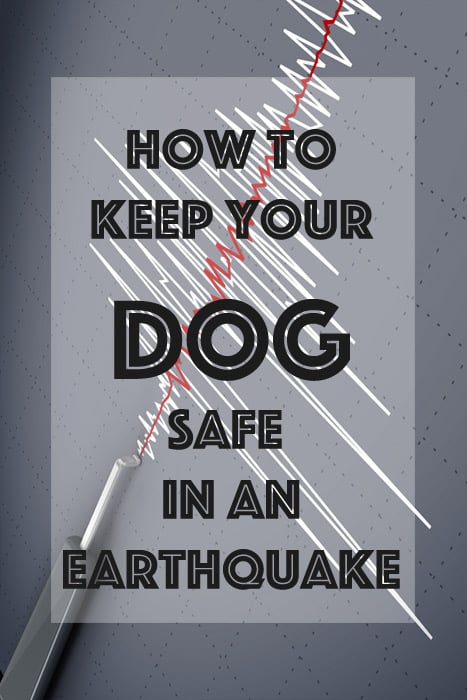How to Keep Your Dog Safe in an Earthquake
Living in Texas, we take steps to make sure our pets are safe in the event of natural disasters like flash floods, wildfires, tornadoes and hurricanes. But we rarely think of how to keep your dog safe in an earthquake–even though a large number of small earthquakes have occurred in our state. We’ve only been in one earthquake in all our travels (and our dogs weren’t with us) but this week’s strong California quakes have made us ask ourselves: what if we were traveling with our dogs when an earthquake hit–or what if a large earthquake should hit close to home?

We just received some tips from American Humane, the country’s first national humane organization, and its American Humane Rescue team. Here are some important tips from American Humane President and CEO Robin Ganzert, PhD, to keep pets safe before, during, and after an earthquake and its aftershocks:
Have a pet disaster preparedness kit ready.
Earthquakes and aftershocks often strike without warning so prepare a kit with a waterproof bag, leash, blanket, first-aid supplies, medications and medical records in a waterproof container, food and water bowls, and 7-10 days of food. Pet owners should also have their pet’s crate or carrier at the ready.
Know where you’ll go in an emergency.
Choose a safe place where you and your pets can go in a disaster. Contact your veterinarian for a list of facilities, find a safe, pet-friendly hotel, or ask your local shelter if they provide emergency shelter for pets.
Never leave your pets behind.
If you have to leave them behind, do not tether, crate or restrain your animals, giving them a chance to escape a dangerous situation, if necessary.
Make sure your animals have identification.
Your pet’s tag should include their name, your telephone number, and vital health information. American Humane recommends microchipping your pet to increase the chance of being reunited. Keep a photo in case you’re separated and need to identify your pet if it is rescued to a shelter.
After a disaster, keep a close watch on pets.
Keep pets away from power lines, debris, and contaminated ground water from broken water mains and sewers. Give pets time to re-orient themselves. Familiar scents and landmarks may be altered, confusing your pet, who may get lost. Uncertainty affects animals, too. Your pet may become more aggressive or self-protective. Keep more room between them, other animals, children or strangers. Comfort your pet with lots of pats or hugs, and provide a quiet environment, even if it is not their own home.
“Earthquakes present dangers for the whole family – dangers that don’t end when the shaking stops,” says Robin Ganzert, PhD, president and CEO of American Humane. “It is important for every pet parent to prepare for these unexpected events, if you haven’t already, and to heed these lifesaving tips in the aftermath of an earthquake. In this way, we may better keep our entire family safe when disaster strikes.”
- Shakespeare Dog Names: 200+ Literary Names from the Bard - February 20, 2026
- Make a DIY Snuffle Box - February 18, 2026
- Review: Outward Hound Hide ‘n Slide by Nina Ottosson - February 15, 2026





